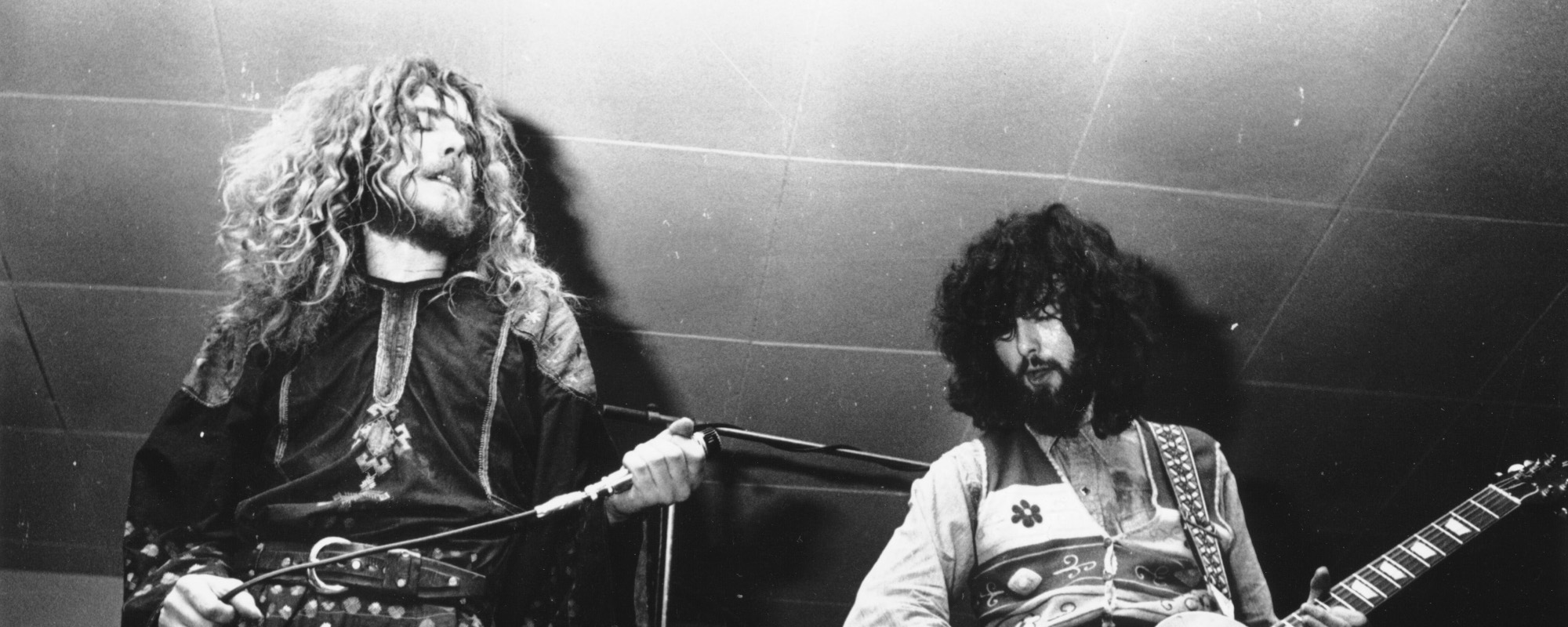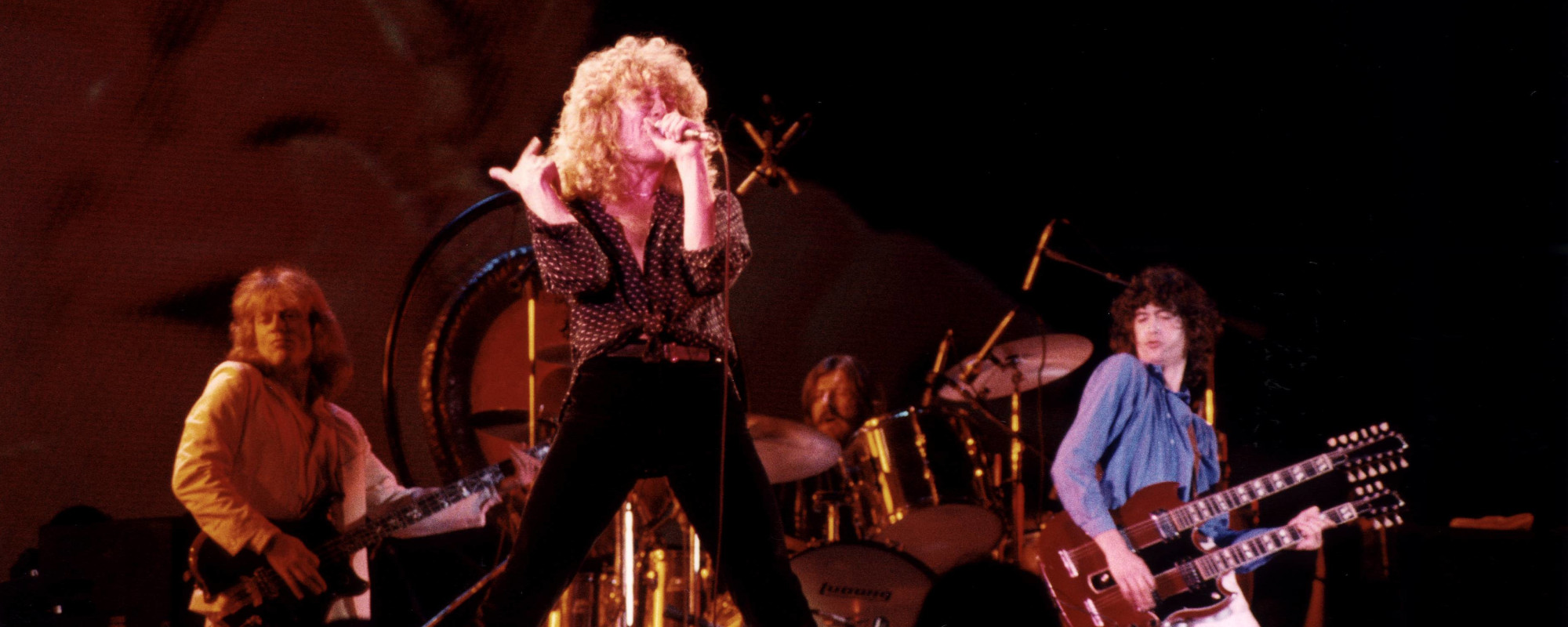Back in 1969, rock outfit Led Zeppelin released their very first self-titled record. The cover of the album is incredibly recognizable and features the Hindenburg exploding in the sky. In a way, there’s a lot of symbolism there. Led Zeppelin as a band came out of the destruction of The Yardbirds, and the outfit was put together quite quickly. They were only together for a few months before they recorded their stellar debut album in the span of just a few weeks.
Videos by American Songwriter
Who knew that Led Zeppelin would eventually become one of the greatest debut rock records of all time? Robert Plant, Jimmy Page, John Paul Jones, and John Bonham’s careers were moving fast, and sometimes, that speed can be useful in putting out a top-notch debut.
Jimmy Page was the propelling force behind the band’s momentum. With a little help from Peter Grant, the band’s manager, Page paid a few thousand pounds for studio time. He also wanted complete creative control of the album; something that ended up working in the band’s favor.
“I wanted artistic control in a vice grip because I knew exactly what I wanted to do with the band,” said Page. “In fact, I financed and completely recorded the first album before going to Atlantic.”
‘Led Zeppelin’ Features a Then-New Recording Technique
So, what makes Led Zeppelin such a good debut album? To start, it’s incredibly original and has been imitated (or at least attempted) countless times since its release in 1969. The heavy style the band implemented wasn’t really heard of at the time; one could say this particular debut record inspired countless iterations and evolutions of rock music and metal that followed.
All of those reasons are justified. However, too few praise this album’s engineering processes enough. Led Zeppelin, namely through Page, implemented then-new recording techniques that gave their debut record a wild new sound.
Page took control of the album’s engineering and asked his friend, Glyn Johns, to take on the mixing efforts. The initial recording session is one of the very first to use an audio engineering technique that utilized natural reverberation. Specifically, Page put a microphone in front of an amp and/or drum, and another microphone 20 feet behind the first one. This captured the recording booth’s ambient soundwaves, which created a stunning, full, reverse echo. You can really hear this effect on songs like “You Shook Me”.
Engineering hacks aside, Led Zeppelin is an amazing debut album because it marked a notable turning point in rock music that one just can’t overlook.
Photo by Michael Ochs Archives/Getty Images
When you purchase through links on our site, we may earn an affiliate commission.













Leave a Reply
Only members can comment. Become a member. Already a member? Log in.